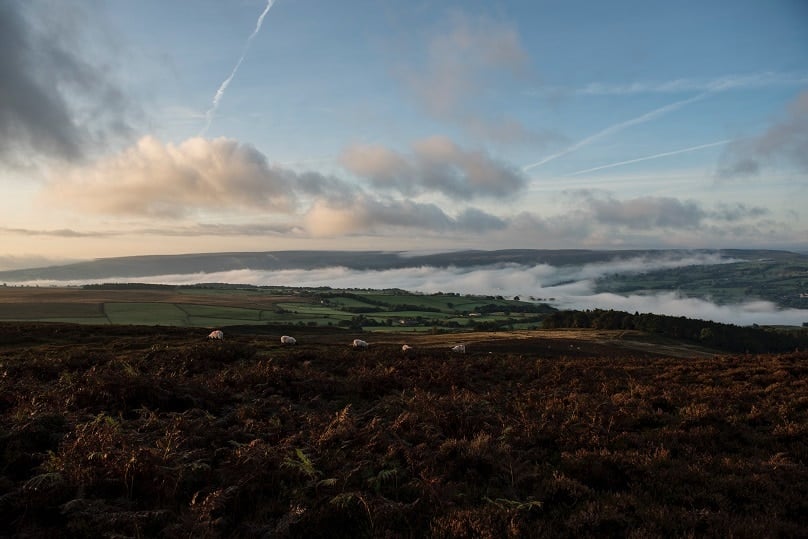
Toward the beginning of Frances Hodgson Burnett’s excellent children’s book, The Secret Garden, the spoiled and wretched young Mary Lennox is in transit. Her parents have died; her fortune is lost. She’s been plucked from a life of lavish wealth and comfort in colonial India, and, dressed in mourning, she is en route to … she knows not what. She is to live in England, far out in the country, with a distant relative she has never met.
After a stupefying train ride across the country, she and her brusque chaperone board a carriage for the last leg of the journey. Mary knows that she is to pass through a moor, but she doesn’t know what a moor is. Here is what she sees:
The carriage lamps shed a yellow light on a rough-looking road which seemed to be cut through bushes and low-growing things which ended in the great expanse of dark apparently spread out before and around them. A wind was rising and making a singular, wild, low, rushing sound.
“It’s—it’s not the sea, is it?” said Mary, looking round at her companion.
“No, not it,” answered Mrs Medlock. “Nor it isn’t fields nor mountains, it’s just miles and miles and miles of wild land that nothing grows on but heather and gorse and broom, and nothing lives on but wild ponies and sheep.”
“I feel as if it might be the sea, if there were water on it,” said Mary. “It sounds like the sea just now.”
“That’s the wind blowing through the bushes,” Mrs Medlock said. “It’s a wild, dreary enough place to my mind, though there’s plenty that likes it—particularly when the heather’s in bloom.”
On and on they drove through the darkness, and though the rain stopped, the wind rushed by and whistled and made strange sounds. The road went up and down, and several times the carriage passed over a little bridge beneath which water rushed very fast with a great deal of noise. Mary felt as if the drive would never come to an end and that the wide, bleak moor was a wide expanse of black ocean through which she was passing on a strip of dry land.
“I don’t like it,” she said to herself. “I don’t like it,” and she pinched her thin lips more tightly together.
I think of this passage often. How many times do we find ourselves in transit between one stage of life and the next? We peer out the carriage window and we see—what is it? An ocean? A blackness? Some amorphous stretch of incomprehensible, hostile land, “a great expanse of dark.” Have you been through such a time? I have.

And we reject meaninglessness, as we should. Ambiguity can be more terrifying than a frank and present danger. We want to be able to make sense of things, to identify what it is we are going through, if we do have to go through it.
This impulse, this drive to name, categorize, and find meaning in every experience, is the hallmark of a rational creature. We do not want to be like witless crickets, singing and leaping our way through the world, taking seasons as they come and then one day mindlessly coming to an end ourselves. We are made in the image of God, and that means we know there is meaning; and so we want to know why things happen. We want to know what our lives mean.
But sometimes, we can’t. Sometimes we are passing through the moor, on our way to a strange and new life we would never have chosen for ourselves. We cannot name what we see in that great expanse of dark. And it is normal to, like Mary, simply decide we do not like it.
But Mary, in the story, holds on too long to her bitter resistance. She harms and stunts herself by being unwilling to see what the moor (and what it represents) can become, even after she finds herself in her new home on the other side of it.
The moor is not a bleak void at all, as she eventually allows herself to see. It is a fertile and joyful place, wild but exquisitely beautiful and fecund. She just couldn’t fathom it, when she first encountered it, because she was still passing through it in the dark. She was still dressed in black, still grieving the loss of her old life.
We will all, at some point, pass through some vast, incomprehensible landscape, a world that is without form and void, with darkness on the face of the deep.
Or so it seems. There is a difference between meaninglessness and ambiguity. Meaninglessness is bleak and truly sterile. Ambiguity . . . well, sometimes you just need to wait and see what will come of it.
Read what happens next. The dark time will not last.
